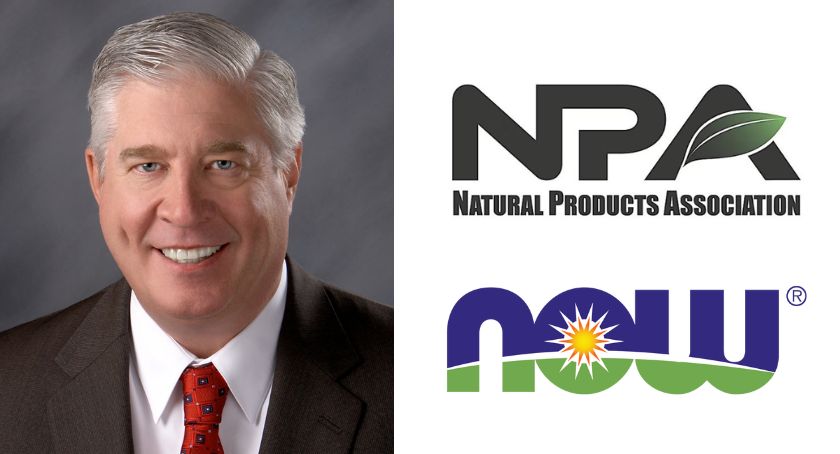Exclusives
Rhode Island Bill Would Restrict Sales of Weight Loss Supplements to Minors
The bill, similar to legislation being introduced in other states, calls for all retailers to keep supplements behind the counter.

By: Mike Montemarano
In March, Rhode Island became the latest state to introduce a bill which would place restrictions on the sale of dietary supplements, primarily with the goal of preventing minors from accessing products containing certain ingredients.
The legislation is different in some ways than bills introduced in other states such as California, New York, and Massachusetts. The language of the bills introduced in those states generally target a broader range of ingredients, or even more simply, supplements marketed to support weight loss or muscle-building.
The Rhode Island bill includes a list of certain ingredients it seeks to prohibit from being sold to minors, including: a dietary supplement containing an ephedrine group alkaloid; androstanediol; androstenedione; norandrostenediol; norandrostenedione; and dehydroepiandrosterone.
Each of these compounds are either neurosteroids, hormones, or drugs which are now or used to be marketed as body building supplements as they alter hormones when taken orally.
However, the Rhode Island bill—like those introduced in other states—seeks to establish a rule in which dietary supplements must be kept behind a counter and only sold to customers by request. Further, “the seller shall request valid identification from any individual who attempts to purchase a dietary supplement set forth [in the list of ingredients] if that individual reasonably appears to the seller to be under 18 years of age.”
Retailers who fail to request identification from customers who appear to be under the age of 18 would be subject to civil penalties and disciplinary actions by their employer. The civil penalties include fines of up to $2,000—far higher than the $250 maximum fine for providing alcohol or tobacco to minors in Rhode Island.
“Any retail establishment that sells over-the-counter dietary supplements shall limit access to such products in a manner designed to prevent the misuse or abuse of such products,” the bill reads. “Products shall not be directly accessible by customers, and may only be accessed by a retail clerk.”
The bill also calls for retailers to post a specific health warning about the use of dietary supplements.
“Retail establishments shall conspicuously post at each purchase counter a notice communicating that certain over-the-counter diet pills, or dietary supplements are known to cause gastrointestinal impairment, tachycardia, hypertension, myocardial infarction, stroke, severe liver injury sometimes requiring transplant or leading to death, organ failure, other serious injury, and death.”
NPA Testifies
The Natural Products Association (NPA) testified in opposition to the legislation at a hearing on March 24.
“So Rhode Island lawmakers want all health and wellness products under lock and key when we’ve seen their benefits over the last two years? At a time when millions of young people face malnutrition with serious long-term health consequences, this is the exact opposite of what lawmakers should be doing,” Daniel Fabricant, president and CEO of NPA, said. “Consumers need more access to vitamins and nutrition because most of them do not eat a balanced and healthy diet. This approach also defies common sense, as teenagers can buy calcium-fortified orange juice but not vitamin C and calcium supplements.
“What’s more concerning is that this may drive teenagers to buy products online, where we find the worst abuses of product manipulation and mislabeling,” Fabricant continued. “It only hurts young people, Rhode Island’s economy, and hardworking store owners who now face a costly new mandate that is completely unnecessary.”
Within NPA’s testimony, Kyle Turk, director of government affairs for NPA, said that supplements contain ingredients found in food and nature. “NPA members and other industry stakeholders invest significant human resources and capital to ensure their products are safe,” he wrote to the legislature. “These include good manufacturing processes, random product testing, adhering to appropriate marketing guidelines, and following every other rule and regulation that the FDA and the FTC have made for 25 years.
“As we understand it, the legislation’s premise suggested that there may be a prevalence of weight-management and muscle-building supplements being used by teenagers and that their use led to eating disorders,” Turk continued. “Supporters of the bill have cited estimates for eating disorders and supplements. Thankfully, we do not have to estimate as the FDA makes this data readily available through SAERs (serious adverse event reports). In 2019, NPA filed a Freedom of Information Act (FOIA) inquiry to the U.S. Food and Drug Administration to explore any adverse events for any cases involving eating disorders and weight-management or muscle-building products … thankfully, according to the FDA, no data point connects eating disorders to weight management or muscle-building products.”





















